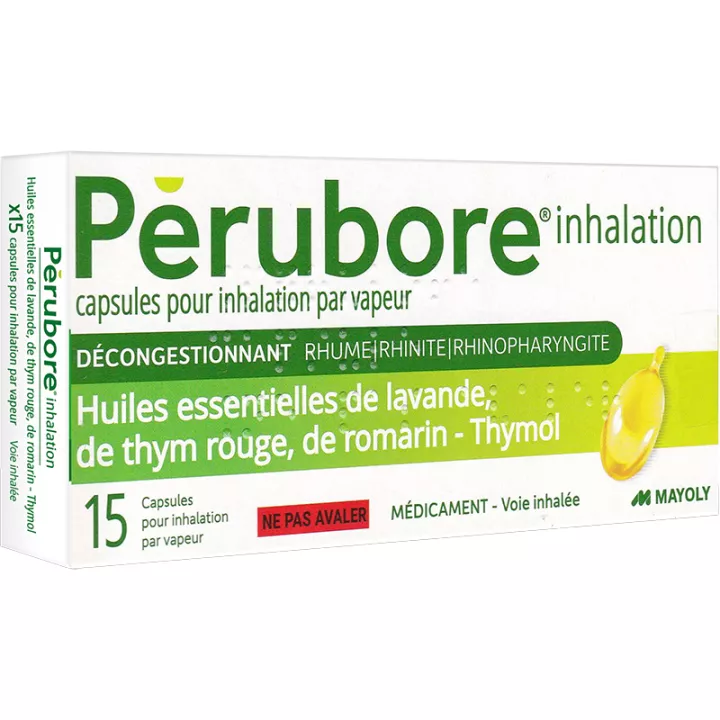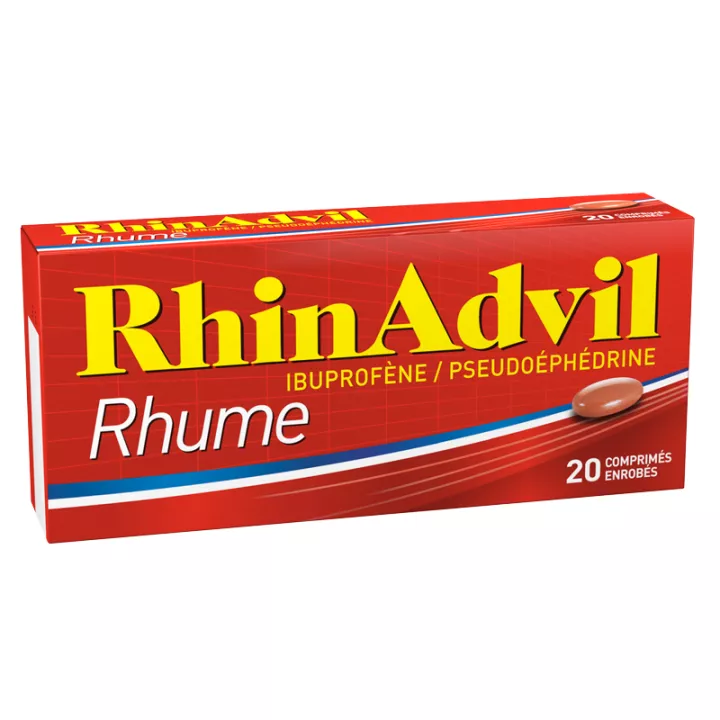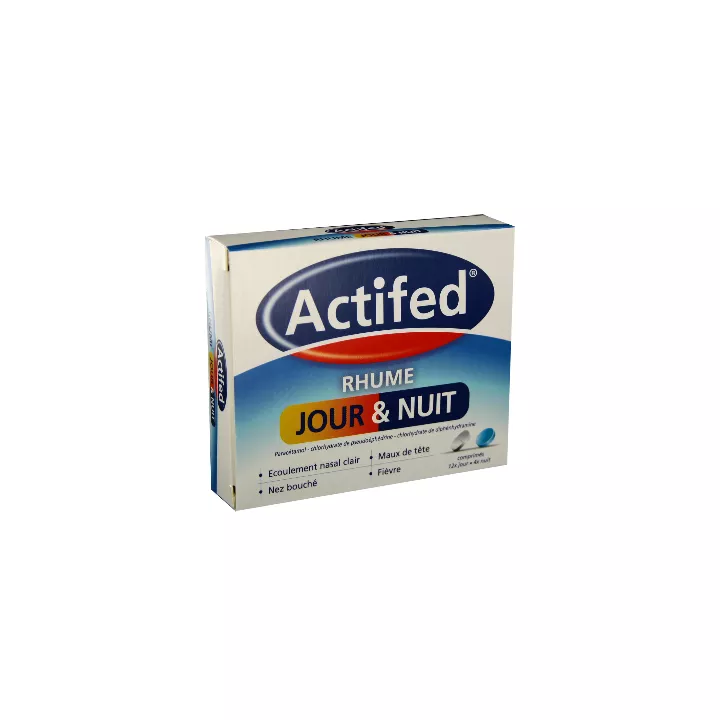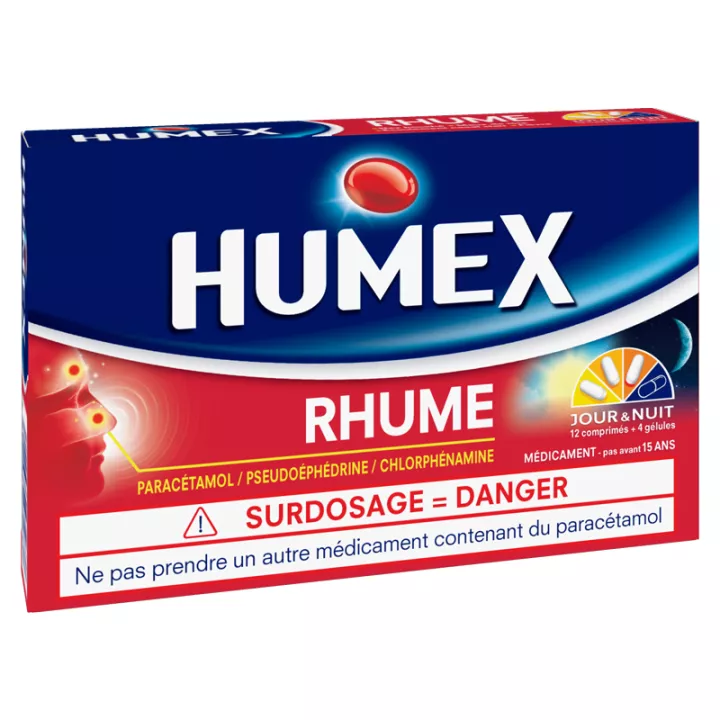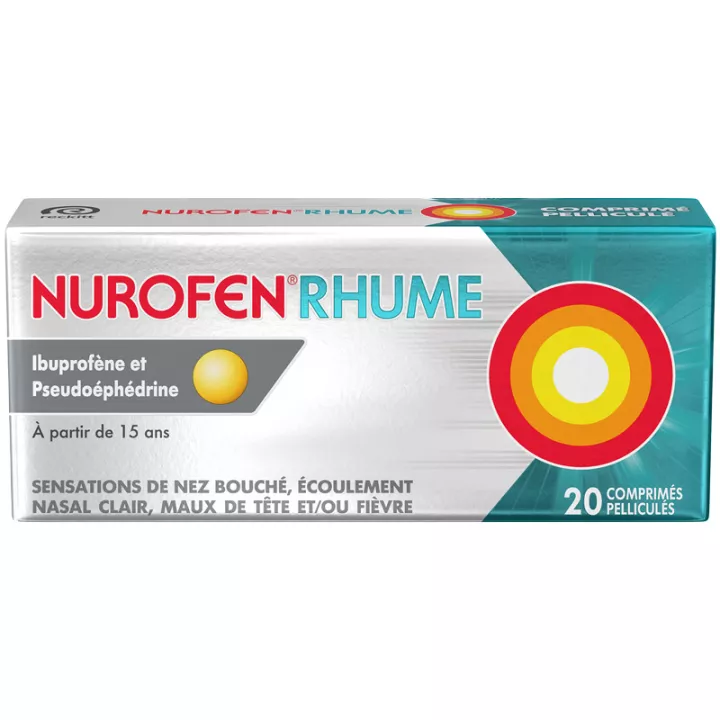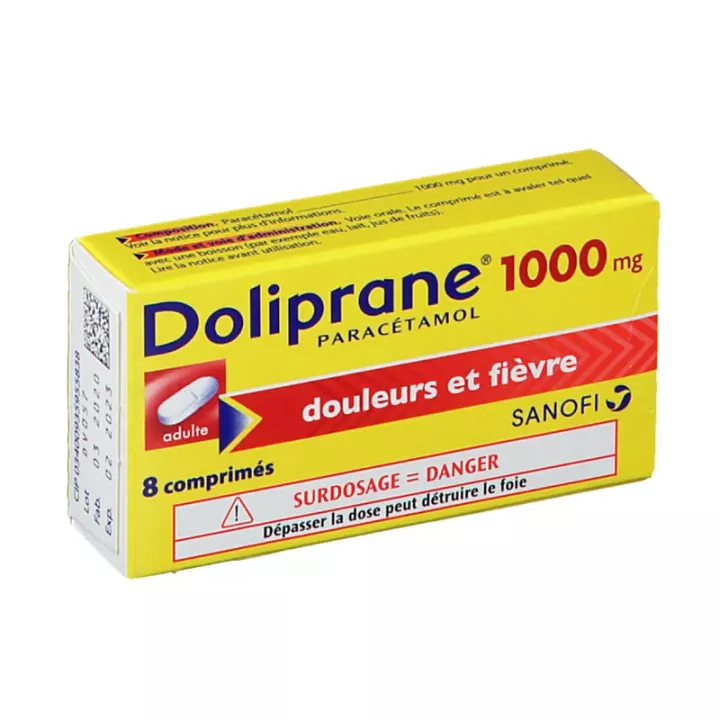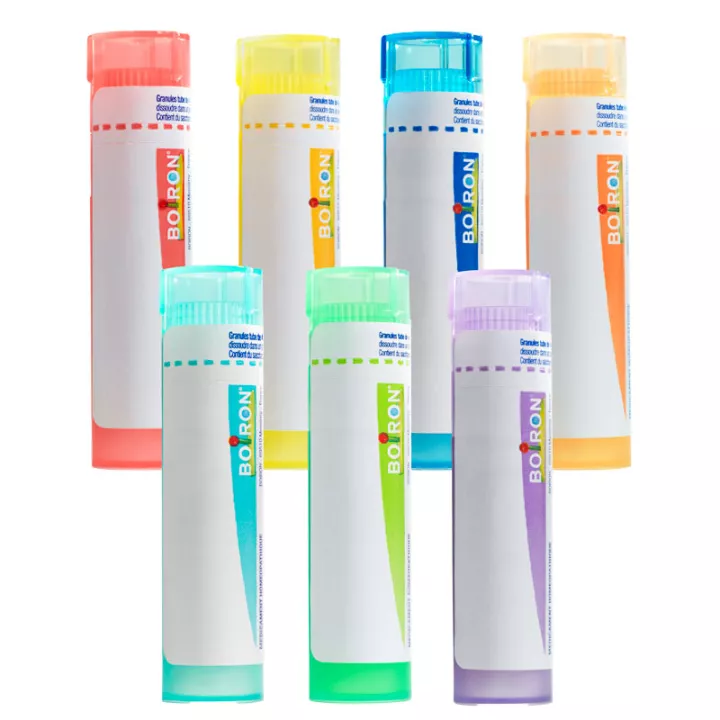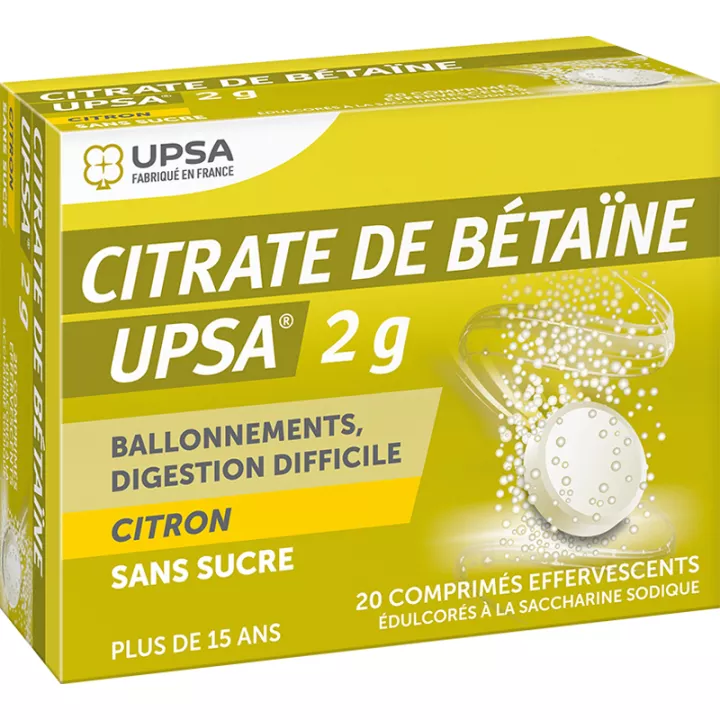NOTICE
ANSM - Updated: 10/07/2018
Name of the drug
RHINADVILCAPS COLD IBUPROFEN / PSEUDOEPHEDRINE 200 mg / 30 mg, soft capsule
Ibuprofen / pseudoephedrine
framed
Read all of this leaflet carefully before you start taking this medicine because it contains important information for you.
You should always take this medicine exactly as described in this leaflet or by your doctor or pharmacist.
· Keep this leaflet. You might need to read it again.
· Talk to your pharmacist for any advice or information.
· If you get any side effects, talk to your doctor or pharmacist. This also applies to any undesirable effect that is not mentioned in this leaflet. See section 4.
· You should talk to your doctor if you do not feel better or if you feel worse after 5 days
What does this booklet contain ?
1. What is RHINADVILCAPS RHUME IBUPROFEN / PSEUDOEPHEDRINE 200 mg / 30 mg, soft capsule and in what cases is it used?
2. What you need to know before taking RHINADVILCAPS RHUME IBUPROFENE / PSEUDOEPHEDRINE 200 mg / 30 mg soft capsule?
3. How to take RHINADVILCAPS RHUME IBUPROFEN / PSEUDOEPHEDRINE 200 mg / 30 mg, soft capsule?
4. What are the possible side effects?
5. How to store RHINADVILCAPS COLD IBUPROFEN / PSEUDOEPHEDRINE 200 mg / 30 mg, soft capsule?
6. Contents of the package and other information.
1. WHAT IS RHINADVILCAPS COLD IBUPROFEN / PSEUDOEPHEDRINE 200 mg / 30 mg, soft capsule AND WHAT IT IS USED FOR?
RHINADVILCAPS RHUME IBUPROFENE / PSEUDOEPHEDRINE contains 2 active ingredients: ibuprofen and pseudoephedrine.
· Ibuprofen belongs to a group of medicines called "nonsteroidal anti-inflammatory drugs" (NSAIDs). It helps to reduce the pain and lower a fever (high temperature).
· Pseudoephedrine belongs to a group of drugs called "vasoconstrictors". It helps clear the nasal passages and facilitates nasal decongestion.
RHINADVILCAPS COLUMN ibuprofen / pseudoephedrine is used to treat the symptoms of colds and flu, including headache, fever (high temperature), sore throat, pain, stuffy nose in adults and adolescents. over 15 years old.
Use this medication only if you have a stuffy nose, headache and fever. Do not use if you only have one of the symptoms listed above.
2. BEFORE YOU TAKE RHINADVILCAPS COLD IBUPROFEN / PSEUDOEPHEDRINE 200 mg / 30 mg, soft capsule?
Do not take RHINADVILCAPS RHUME IBUPROFEN / PSEUDOEPHEDRINE 200 mg / 30 mg, soft capsule if:
· You are allergic to ibuprofen or pseudoephedrine or any of the components listed in section 6, or if you have ever had an allergic reaction to a similar drug in the past, such as aspirin / acetylsalicylic acid or other NSAIDs. Signs of an allergic reaction include rash, hives, itching, difficulty breathing, tightness of the chest, swelling of the mouth, face, lips, or tongue.
· you have had gastrointestinal problems after taking RHINADVILCAPS RHUME IBUPROFEN / PSEUDOEPHEDRINE, ibuprofen, aspirin / acetylsalicylic acid or other NSAIDs in the past, such as stomach ulcers, bleeding stomach or perforation
· you currently have a stomach ulcer or stomach bleeding
· you have severe liver or kidney problems
· you are pregnant or breastfeeding
· you are under 15 years old
· you have had an asthma attack after taking RHINADVILCAPS RHUME IBUPROFEN / PSEUDOEPHEDRINE, ibuprofen, aspirin / acetylsalicylic acid or other NSAIDs in the past
· you currently have a cerebral hemorrhage (bleeding in your brain), or any other sign of bleeding or a problem with your blood count,
· you have serious problems with your heart, including;
o severe heart failure
o severe or poorly balanced high blood pressure
o severe heart disease
o you have ever had a heart attack
· you have ever had a stroke
· you already had seizures
· you have systemic lupus erythematosus (SLE) - a condition that affects the immune system, causing joint pain, skin changes and other problems
· if you take:
o other medicines containing NSAIDs for pain relief such as ibuprofen
o or aspirin / acetylsalicylic acid.
o other medications to clean nasal passages by mouth (through the mouth) or nasally (through the nose), such as pseudoephedrine, phenylpropanolamine, phenylephrine or ephedrine
o a drug used to treat attention deficit hyperactivity disorder (ADHD) called methylphenidate
o medicines to treat depression called non-selective monoamine oxidase inhibitors (MAOIs) such as iproniazid, or if you took them in the last 14 days
· you have diabetes, thyroid problems or a tumor of the adrenal gland (called pheochromocytoma)
· you have glaucoma (high pressure in the eye)
· you have problems urinating, due to prostate problems or other causes.
Do not take RHINADVILCAPS RHUME IBUPROFENE / PSEUDOEPHEDRINE, if any of the above apply to you. If in doubt, talk to your doctor or pharmacist before taking RHINADVILCAPS RHUME IBUPROFENE / PSEUDOEPHEDRINE.
Warnings and precautions
Talk to your doctor or pharmacist before taking RHINADVILCAPS RHUME IBUPROFEN / PSEUDOEPHEDRINE 200 mg / 30 mg, soft capsule if:
· you have heart problems including heart failure, angina pectoris (chest pain) or if you have had a heart attack, surgical bypass, peripheral arterial disease (poor circulation in the legs or feet due to narrowed arteries) or blocked) or any kind of stroke (including "mini-stroke" or transient ischemic attacks (TIA)).
· You have high blood pressure, diabetes, high cholesterol, a family history of heart disease or stroke, or if you smoke, you have asthma - because of the risk of a seizure. asthma
· you have liver problems, kidney problems
· you have prostate problems
· you have problems with bleeding
· you have had gastrointestinal problems in the past, such as stomach ulcers, stomach bleeding, ulcerative colitis, Crohn's disease or hiatal hernia
· you have an overactive thyroid gland (hyperthyroidism)
· you have a personality disorder.
Pseudoephedrine can provoke a positive reaction during anti-doping tests. Do not take RHINADVILCAPS RHUME IBUPROFENE / PSEUDOEPHEDRINE if this may affect you
If any of the above applies to you or if you are not sure, talk to your doctor or pharmacist before taking RHINADVILCAPS RHUME IBUPROFENE / PSEUDOEPHEDRINE.
You should talk to your doctor if you do not feel better or if you feel worse after 5 days. In particular if:
· you have a runny nose of green or yellow color
· you have a high fever that persists.
Talk to a doctor if any of the above applies to you.
Cardiac Attack and Stroke
Anti-inflammatory / analgesic medications such as ibuprofen may be associated with a slightly increased risk of heart attack or stroke, especially when used at high doses. Do not exceed the recommended dose or duration of treatment.
The elderly
If you are a senior taking RHINADVILCAPS RHUME IBUPROFENE / PSEUDOEPHEDRINE, you are more likely to have side effects such as stomach bleeding or perforation (signs may include stomach pain and heartburn). ). It can put your life in danger. See "Undesirable effects to be monitored at the start of treatment" in section 4 for more information.
Children and adolescents
RHINADVILCAPS RHUME IBUPROFEN / PSEUDOEPHEDRINE should not be used in children under 15 years of age.
Talk to your doctor or pharmacist before taking RHINADVILCAPS RHUME IBUPROFENE / PSEUDOEPHEDRINE if you are 15 to 18 years old and you are not drinking fluids or are dehydrated because of diarrhea or if you have an illness. The risk of kidney problems with RHINADVILCAPS RHUME IBUPROFEN / PSEUDOEPHEDRINE is higher in case of dehydration.
Other medicines and RHINADVILCAPS RHUME IBUPROFEN / PSEUDOEPHEDRINE 200 mg / 30 mg, soft capsule
Tell your doctor or pharmacist if you are taking, have recently taken or might take any other medicines. This includes nonprescription drugs and herbal medicines.
Do not take RHINADVILCAPS RHUME IBUPROFEN / PSEUDOEPHEDRINE 200 mg / 30 mg, soft capsule if you are taking any of the following medicines:
· other medicines containing NSAIDs to relieve pain such as ibuprofen or aspirin / acetylsalicylic acid
· other medications to clear the nasal passages orally or nasally, such as pseudoephedrine, phenylpropanolamine, phenylephrine or ephedrine
· a drug used to treat attention deficit hyperactivity disorder (ADHD) called methylphenidate
· medicines to treat depression called non-selective monoamine oxidase inhibitors (MAOIs) such as iproniazid, or if you have taken them within the last 14 days.
Do not take RHINADVILCAPS RHUME IBUPROFENE / PSEUDOEPHEDRINE if any of the above apply to you. If in doubt, talk to your doctor or pharmacist before taking this medicine.
Tell your doctor or pharmacist before taking RHINADVILCAPS RHUME IBUPROFENE / PSEUDOEPHEDRINE 200 mg / 30 mg soft capsule if you are taking any of the following medicines:
RHINADVILCAPS RHUME IBUPROFENE / PSEUDOEPHEDRINE is not recommended for the following medications:
· medicines to treat depression called reversible inhibitors of monoamine oxidase A (RIMA) and selective serotonin reuptake inhibitors (SSRIs) such as fluoxetine
· linezolid
· methylene blue
· bromocriptine, pergolide, lisuride, cabergoline, ergotamine or dihydroergotamine
· Anticoagulant medications (ie, which fluidify the blood / prevent the appearance of clots such as aspirin / acetylsalicylic acid, warfarin, ticlopidine)
· heparin when used to treat a blood clot
· lithium, when used to treat severe mood problems
· methotrexate at doses greater than 20 mg per week
· pemetrexed if you have kidney problems
· corticosteroids
Taking RHINADVILCAPS RHUME IBUPROFEN / PSEUDOEPHEDRINE with the following medications requires a warning. . Taking RHINADVILCAPS RHUME IBUPROFEN / PSEUDOEPHEDRINE may affect or may be affected by taking other medications. For example :
· drugs that reduce high blood pressure (ACE inhibitors such as captopril, beta-blockers such as atenolol), angiotensin II receptor antagonists (such as losartan), or diuretics
· methotrexate at doses less than 20 mg per week
· pemetrexed if you have normal kidney function
· medicines to treat depression called tricyclic antidepressants such as amitriptyline
· digoxin or quinidine used to treat heart problems
· ciclosporin or tacrolimus used after transplantation.
· Tell your doctor that you are taking RHINADVILCAPS RHUME IBUPROFENE / PSEUDOEPHEDRINE if you need anesthesia before an operation or procedure. Your doctor will ask you to stop taking RHINADVILCAPS RHUME IBUPROFENE / PSEUDOEPHEDRINE a few days before your anesthesia.
· You should also tell your anesthetist that you have taken RHINADVILCAPS RHUME IBUPROFENE / PSEUDOEPHEDRINE
The use of RHINADVILCAPS RHUME IBUPROFENE / PSEUDOEPHEDRINE with the following drugs should be taken into account:
· blood coagulation medications used to thin the blood, such as low-dose aspirin (75 mg / day or less), clopidogrel or ticlopidine
· potassium-sparing diuretics such as amiloride or spironolactone
· trimethoprim (antibiotic)
· iron-chelating substances such as deferasirox
· corticosteroids like prednisolone
· phenytoin used to treat epilepsy
· probenecid and sulfinpyrazone used to treat gout
· zidovudine used to treat HIV
· sulfonylureas such as gliclazide or glimepiride used to treat diabetes
· quinolone antibiotics such as ciprofloxacin
· ginkgo biloba
· heparin when used to prevent blood clots.
Some other drugs may also affect or be affected by RHINADVILCAPS RHUME IBUPROFEN / PSEUDOEPHEDRINE treatment. Therefore, you should always seek the advice of your doctor or pharmacist before using RHINADVILCAPS RHUME IBUPROFENE / PSEUDOEPHEDRINE together with other medicines.
RHINADVILCAPS COLD IBUPROFEN / PSEUDOEPHEDRINE 200 mg / 30 mg, soft capsule with food, drink and alcohol
Not applicable.
Pregnancy, lactation and fertility
Do not take RHINADVILCAPS RHUME IBUPROFENE / PSEUDOEPHEDRINE if you are pregnant or breastfeeding.
If you think you may be pregnant or are planning to have a baby, ask your doctor or pharmacist for advice before taking this medicine.
Ibuprofen can affect the woman's ability to get pregnant. This effect is reversible when the treatment is stopped.
It is unlikely that ibuprofen, if used from time to time, will affect your chances of becoming pregnant. Talk to your doctor before taking this medicine if you have had problems getting pregnant in the past.
Driving and using machines
RHINADVILCAPS RHUME IBUPROFEN / PSEUDOEPHEDRINE may cause dizziness, unusual headache, or vision or hearing problems, including audible or visual hallucinations. If this happens, do not drive, ride a bicycle, or use any tools or machines .
RHINADVILCAPS RHUME IBUPROFEN / PSEUDOEPHEDRINE 200 mg / 30 mg, soft capsule, contains sorbitol (E 420) of soy lecithin and potassium.
RHINADVILCAPS RHUME IBUPROFEN / PSEUDOEPHEDRINE contains sorbitol (E 420), a type of sugar. If you have been told by your doctor that you have an intolerance to some sugars, contact your doctor before taking this medicine.
RHINADVILCAPS RHUME IBUPROFEN / PSEUDOEPHEDRINE contains soy lecithin. If you are allergic to peanut or soy, do not use this medicine.
RHINADVILCAPS RHUME IBUPROFEN / PSEUDOEPHEDRINE contains 0.41 mmol of potassium per capsule. Take into account in patients with reduced renal function or patients on a low potassium diet.
3. HOW TO TAKE RHINADVILCAPS COLD IBUPROFEN / PSEUDOEPHEDRINE 200 mg / 30 mg, soft capsule?
Always take this medicine exactly as described in this leaflet or as directed by your doctor or pharmacist. Check with your doctor or pharmacist if in doubt.
Adults and children over 15:
Dosage
· The recommended dose is one capsule every 4 to 6 hours.
· For more intense symptoms, you can take 2 capsules at the same time.
· Do not exceed 6 capsules in 24 hours.
Administration mode
Take the whole capsule (as is) with a large glass of water.
Duration of treatment
Do not take this medicine for more than 5 days.
· This medication should be used in the short term only, take the lowest dose for the shortest time needed to treat your symptoms.
· You must talk to a doctor if you do not feel better or if your symptoms worsen after 5 days. He will advise you on what to do.
If you take more RHINADVILCAPS RHUME IBUPROFENE / PSEUDOEPHEDRINE
200 mg / 30 mg, soft capsule that you should have or if children have accidentally taken the medicine, always contact a doctor or the nearest hospital for advice on the risk and advice on the measures to take.
Take the medicine with you.
Symptoms may include nausea, abdominal pain, vomiting (may contain traces of blood), headache, ringing in the ears, confusion and unsteady eye movements. In high doses, the following symptoms have been reported: drowsiness, chest pain, palpitations, unconsciousness, seizures (mainly in children), weakness and dizziness, blood in the urine, feeling cold and breathing problems.
If you forget to take RHINADVILCAPS RHUME IBUPROFENE / PSEUDOEPHEDRINE:
Do not take a double dose to make up for the dose you have forgotten to take.
If you stop taking RHINADVILCAPS RHUME IBUPROFENE / PSEUDOEPHEDRINE
Not applicable.
If you have any further questions about the use of this medicine, ask your doctor or pharmacist for more information.
4. WHAT ARE THE POSSIBLE SIDE EFFECTS?
Like all medicines, this medicine can cause side effects, although not everybody gets them.
The occurrence of adverse effects may be minimized by using the lowest possible dose for the shortest duration necessary to relieve symptoms.
The following side effects may occur with this medicine.
Stop taking RHINADVILCAPS RHUME IBUPROFEN / PSEUDOEPHEDRINE 200 mg / 30 mg, soft capsule immediately and tell your doctor or pharmacist if you notice any of the following side effects:
Frequent: may affect up to 1 in 10 people:
· nausea
· bleeding from the stomach or intestine, signs include vomiting blood, blood in the stools, or black stools.
Uncommon: May affect up to 1 in 100 people:
· Severe headaches or headaches more painful than usual.
Very rare: Can affect up to 1 in 10,000 people:
· heart attack
· fast heartbeat or palpitations
· allergic reaction to RHINADVILCAPS RHUME IBUPROFENE / PSEUDOEPHEDRINE , signs include: rash, hives, itching, difficulty breathing, tightness of the chest, swelling of the mouth, face, lips or tongue
· bullous lesions on the skin or mucous membranes such as the inside of the mouth. The signs include a burning sensation, with redness, blisters and ulcers.
Frequency unknown:
· stroke
· behavioral problems such as: excitement, agitation, anxiety or nervousness.
Stop taking RHINADVILCAPS RHUME IBUPROFENE / PSEUDOEPHEDRINE immediately and tell your doctor or pharmacist if you notice any of the side effects listed above.
Adverse effects to monitor at the beginning of treatment
Tell your doctor or pharmacist if you have stomach problems such as stomach bleeding or perforation (signs may include stomach upset and heartburn) at the beginning of treatment with RHINADVILCAPS RHUME IBUPROFENE / PSEUDOEPHEDRINE . Older people may be more likely to have these adverse effects that may be life-threatening.
Other side effects
Tell your doctor or pharmacist if you experience any of the following side effects:
Frequent: may affect up to 1 in 10 people:
· indigestion, upset stomach, vomiting, diarrhea, constipation, flatulence.
Uncommon: May affect up to 1 in 100 people:
· stomach ulcer
· insomnia
· feeling drowsy or tired
· feeling dizzy or irritable
· sight problems
· persistent headaches
· hypersensitivity such as wheezing and difficulty breathing in patients who have ever had bronchial asthma or allergic disease.
Rare: Can affect up to 1 in 1,000 people:
· kidney problems
· ear buzz (tinnitus).
Very rare: Can affect up to 1 in 10,000 people:
· depression
· cardiac arrest
· renal failure
· high blood pressure
· painful or inflamed mouth
· pancreatitis
· intestinal stenosis (narrowing)
· aseptic meningitis, aggravation of infectious inflammations
· blood disorders that may result in bruising or susceptibility to infection
· liver problems including abnormal liver function, hepatitis or jaundice (yellowing of the skin or eyes).
Frequency unknown
· sweat
· chest pain
· swelling of the stomach
· dry mouth, feeling thirsty
· abnormal spasm, seizures
· dizziness (vertigo)
· increased transaminases (revealed in tests (blood)
· visual or auditory hallucinations
· skin rash, red or purple discoloration of the skin, fluid retention (edema)
· decrease in the frequency of urine, presence of blood or protein in the urine (revealed in urine tests)
· glaucoma in patients at risk.
· A severe skin reaction called hypersensitivity syndrome (DRESS syndrome) can occur. The symptoms of hypersensitivity are: rash, fever, swollen lymph nodes and increased eosinophils (a type of white blood cell).
Tell your doctor or pharmacist if you experience any of the side effects listed above .
Reporting of side effects
If you get any side effects, talk to your doctor or pharmacist. This also applies to any undesirable effect that is not mentioned in this leaflet. You can also report side effects directly via the national reporting system: National Agency for the Safety of Medicines and Health Products (ANSM) and the network of Regional Pharmacovigilance Centers - Website: www.ansm.sante.fr
By reporting side effects, you can help provide more information about the safety of the medicine.
5. HOW TO STORE RHINADVILCAPS COLD IBUPROFEN / PSEUDOEPHEDRINE 200 mg / 30 mg, soft capsule?
Keep this medicine out of the sight and reach of children.
Do not use this medicine after the expiry date which is stated on the carton. The expiry date refers to the last day of this month.
Store at a temperature not exceeding 25 ° C
Do not dispose of any medication in the sewage system or in the household garbage. Ask your pharmacist to eliminate medications that you no longer use. These measures will help protect the environment.
6. CONTENTS OF PACKAGING AND OTHER INFORMATION
What RHINADVILCAPS RHUME contains ibuprofen / pseudoephedrine 200 mg / 30 mg, soft capsule
· The active substances are:
Ibuprofen................................................. .................................................. ................. 200 mg
Pseudoephedrine hydrochloride ............................................... .................................... 30 mg
· The other components are:
Filling liquid : Potassium hydroxide, Macrogol 600, purified water
Gelatin capsule : sorbitol (E 420), gelatin, black printing ink [(Macrogol 400, polyvinyl phthalate acetate, propylene glycol, black iron oxide (E 172)], processing aid : soy lecithin in triglycerides.
What RHINADVILCAPS RHUME IBUPROFENE / PSEUDOEPHEDRINE 200 mg / 30 mg soft capsule looks like and contents of the pack
RHINADVILCAPS RHUME IBUPROFENE / PSEUDOEPHEDRINE comes in the form of a light-colored, oval soft capsule printed with "200/30" in black ink.
RHINADVILCAPS RHUME IBUPROFEN / PSEUDOEPHEDRINE is available from your pharmacist in white, opaque, aluminum blisters of 2, 4, 8, 10, 12, 16, 20 or 24 capsules. Not all presentations may be marketed.
Marketing Authorization Holder
PFIZER FAMILY HEALTH
23-25 Avenue of Dr. Lannelongue
75014
PARIS
LA FRANCE
Operator of the marketing authorization
PFIZER FAMILY HEALTH
23-25 Avenue of Dr. Lannelongue
75014
PARIS
LA FRANCE
Maker
PFIZER CONSUMER MANUFACTURING ITALY Srl
Via Nettunense 90
04011
Aprilia
Italy
Names of the drug in the member states of the European Economic Area
This medicine is authorized in the member states of the European Economic Area under the following names:
[to be completed later by the holder]
The last date this leaflet was revised is:
[to be completed later by the holder]
Other
Detailed information on this medicine is available on the ANSM website (France).



